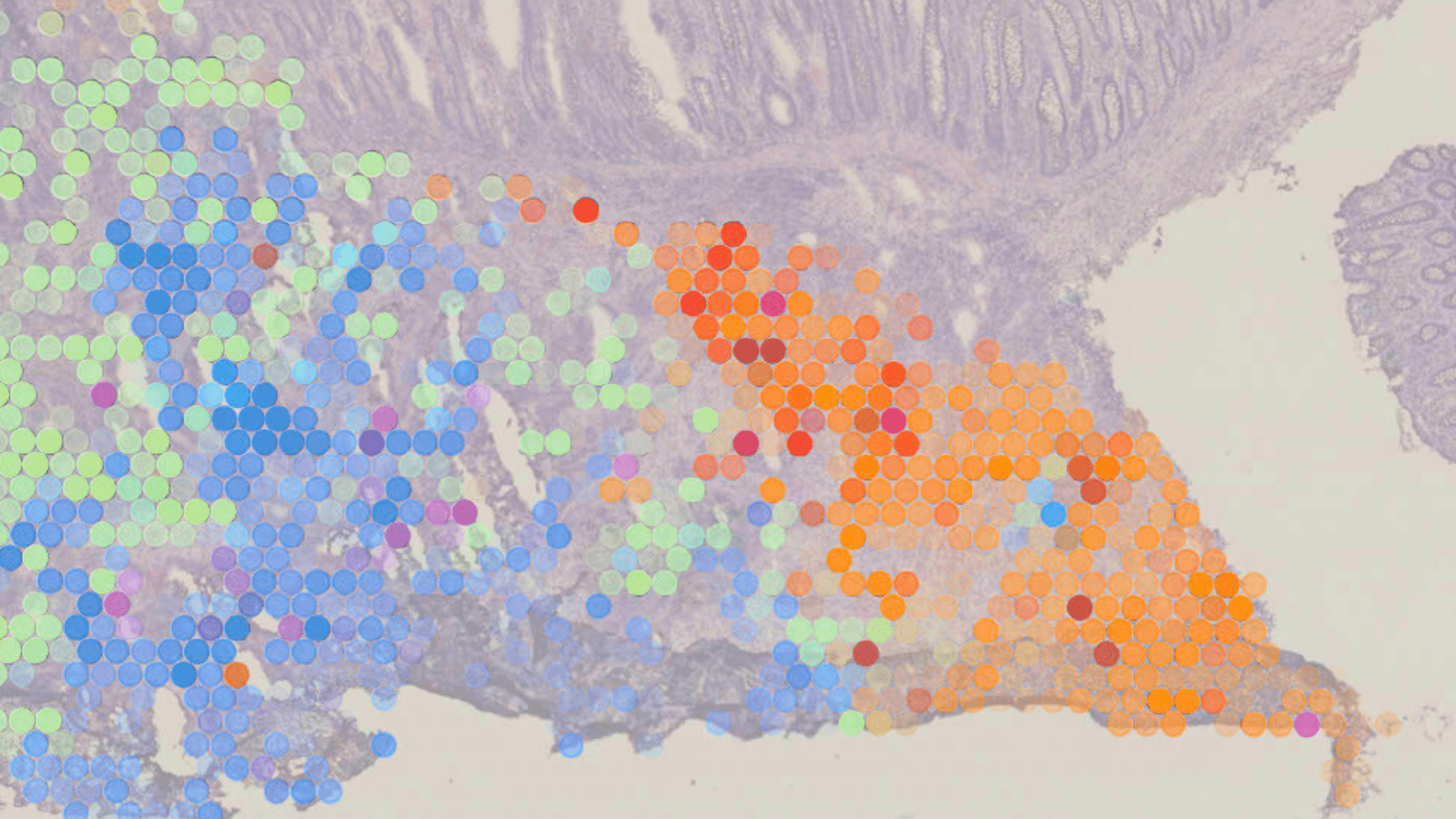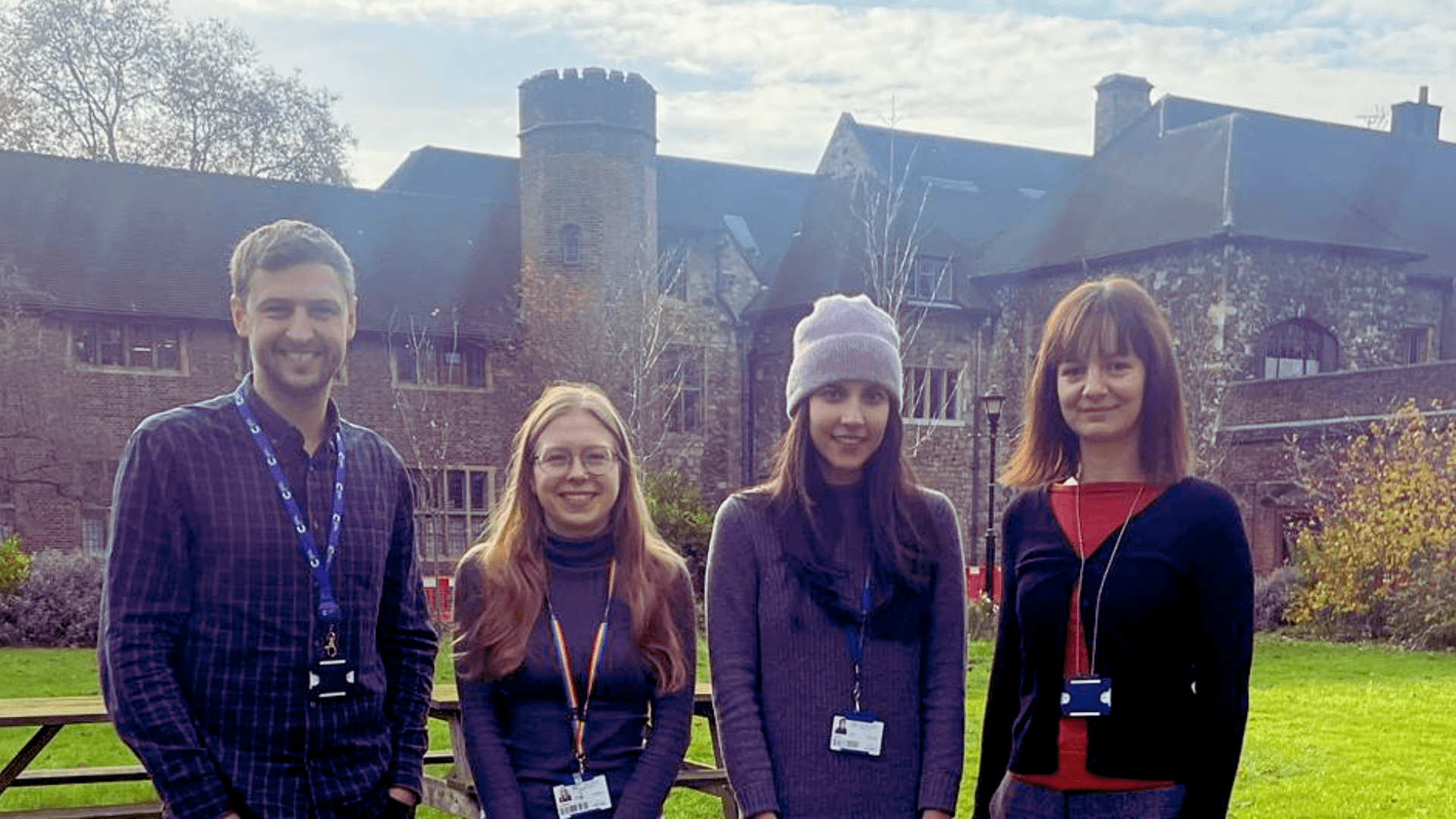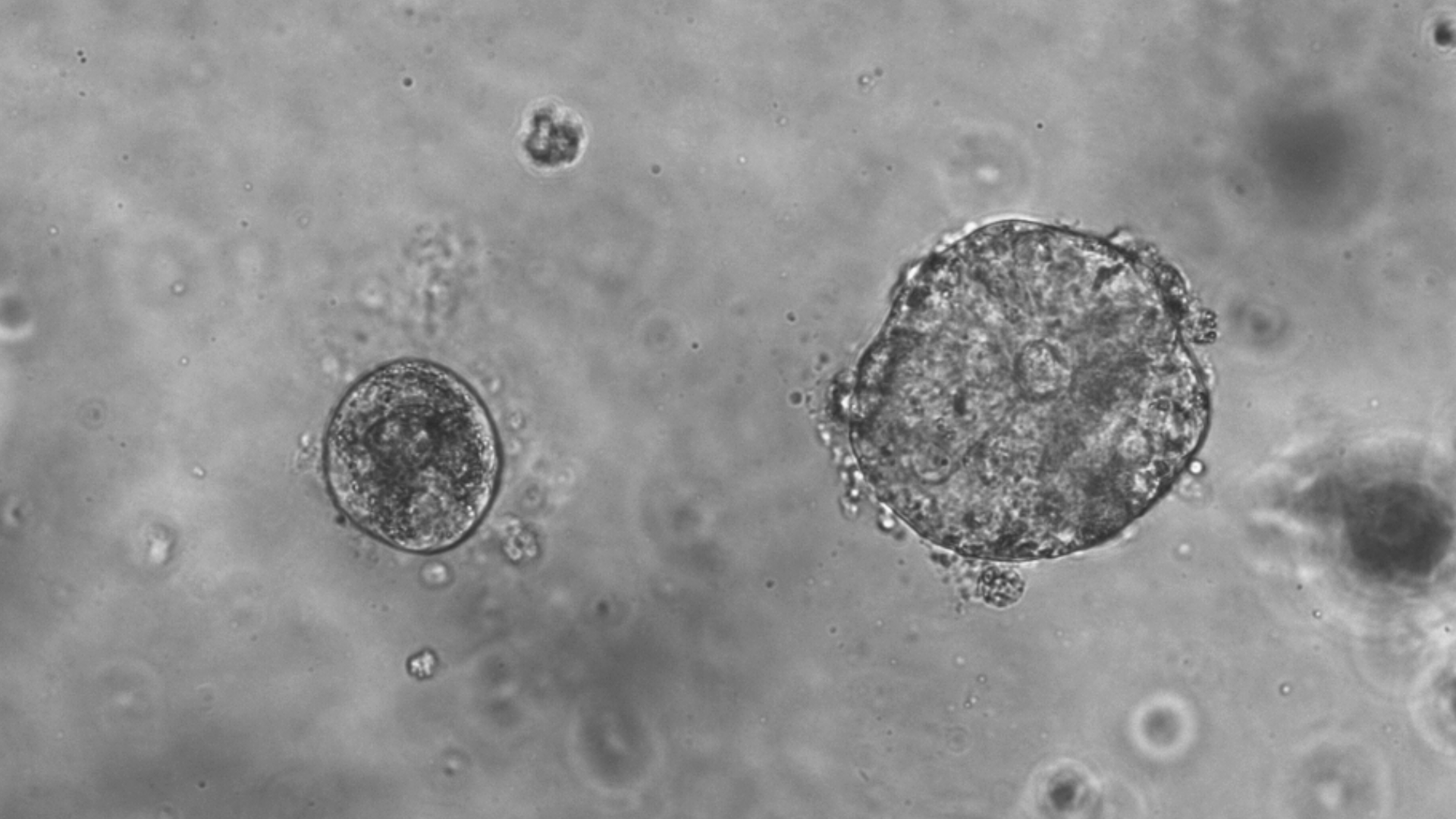Dr Mirjana Efremova awarded £1m Cancer Research UK grant to decode bowel cancer’s plastic nature
Congratulations to Dr Mirjana Efremova, who has been awarded a £1m Career Establishment Award from Cancer Research UK (CRUK). These grants support outstanding early-career scientists to develop their research groups.
The funding will support Dr Efremova’s work using cutting-edge computational techniques to investigate how bowel cancer adapts so rapidly – an ability that allows it to invade other tissues and become resistant to therapies. We sat down with Dr Efremova to learn more about her journey to starting her first lab at the Barts Cancer Institute, Queen Mary University of London, and how this new grant is helping her to expand her team, grow as a group leader and take her research to the next level.
Dr Efremova currently has an exciting opportunity for a postdoctoral researcher to join her team, thanks to this new funding. Find out more and apply here.

Tell us about your journey into science.
I’m a computational biologist by training. My research path started at the University of Innsbruck in Austria, where I completed my PhD in molecular oncology, exploring how bowel cancer evolves under the influence of the immune system. Around that time, single-cell genomics techniques were gaining traction – these tools provide a rich picture of the composition of each of the thousands of individual cells within a tissue. I was drawn to the possibilities it offered, so I undertook my postdoc at the Wellcome Sanger Institute in Cambridge, UK, in the lab of Sarah Teichmann, which stood at the centre of much of this innovation.

I became interested in using single-cell technologies to understand the complex mix of different cells in the tumour microenvironment – the neighbourhood of cells surrounding the tumour – and how they behave and communicate with one another. Here, I developed a tool called CellPhoneDB that uses single-cell techniques to infer how networks of cells communicate. I became fascinated by how cells adapt and change in response to signals. Cancer cells are especially adaptable, changing their characteristics in order to spread to other tissues, survive in new environments and withstand therapies to become resistant. I launched my own lab at the Barts Cancer Institute to study these processes in bowel cancer.
What drew you to the Barts Cancer Institute?
One of the most significant things that drew me to the Barts Cancer Institute was its tissue banks – having access to patient samples is invaluable for our work. The institute is also known for its very supportive and collaborative environment. As a computational biologist looking to set up my own wet lab, I needed exactly that kind of support. Today, I have a diverse team, with some members focusing on computational work and others tackling both computation and laboratory research.

What research questions are you tackling?
Firstly, we’re investigating how bowel cancer spreads – the process of metastasis. To do this, we collect samples from the tissue bank from patients with bowel cancer whose disease has spread to their liver. Using single-cell techniques, we study cells in the tumour microenvironment, examining not only the expression of genes but also epigenetics – how these genes are being activated or deactivated. We also use an approach called spatial transcriptomics that enables us to map out how different cell types are positioned in the microenvironment.
Secondly, we’re interested in how bowel cancer becomes resistant to chemotherapy. Using tissue from patients with bowel cancer, we create organoids – miniature tumours we grow in the lab that closely mimic the genetics and structure of real bowel tumours. We can then treat these organoids and study how they become resistant. We’ve also recently branched out from bowel cancer to study therapy resistance in B cell lymphoma in an exciting collaboration with Dr Jessica Okosun at the BCI and Dr Dinis Calado at the Francis Crick Institute.

What will your new CRUK Career Establishment Award enable?
This is the largest grant my lab has received to date and will enable us to grow our team and progress to the next phase in our research. It enables me to recruit a new postdoc and PhD student, who will work with me to better understand how bowel cancer adapts and evolves. We have some exciting hypotheses emerging from our big-data analyses of patient samples that we want to test in our organoid models. I can’t give too much away at this point! But we hope that if we can understand how cells change to enable metastasis, we could pave the way for new therapeutic strategies that prevent cells from entering an invasive state that our analyses revealed, or that force them into a state where they can be more easily targeted by the immune system.
How else will this award support your work?
CRUK offers amazing support that extends beyond the monetary value of the grant. I'm now a part of CRUK's Women of Influence mentoring scheme, which I find incredibly valuable. I’ve been paired with an experienced businesswoman who is working with me to develop skills such as effective leadership, team management and networking. These soft skills are crucial for success in any field, but they aren't emphasized as much in academia as they are in the business world. Having someone who can offer their wisdom in this area is fantastic. In addition, CRUK offers numerous opportunities to meet and collaborate with other CRUK fellows – it’s great to become a part of this supportive community.
Dr Marjolein Schaap, Research Programme Manager in CRUK's Research Careers team commented further on the Women of Influence scheme:
"The Cancer Research UK Women of Influence Initiative is a mentorship scheme which pairs exceptional women from our funded research network with successful leading businesswomen as their mentors to provide career support and a fresh perspective from outside of academia on some of the challenges that our researchers face in their careers.
"Since its inception almost 10 years ago, the Wol initiative has been extremely successful, supporting more than 90 researchers with 51 currently active mentor-mentee pairings.
"We are delighted to see the positive experience Mirjana has had on the initiative and look forward to the opportunity to support more of our brilliant researchers so that they can reach their full potential as future cancer research leaders and to be role models for future generations of women as well."
Category: General News, Grants & Awards

No comments yet